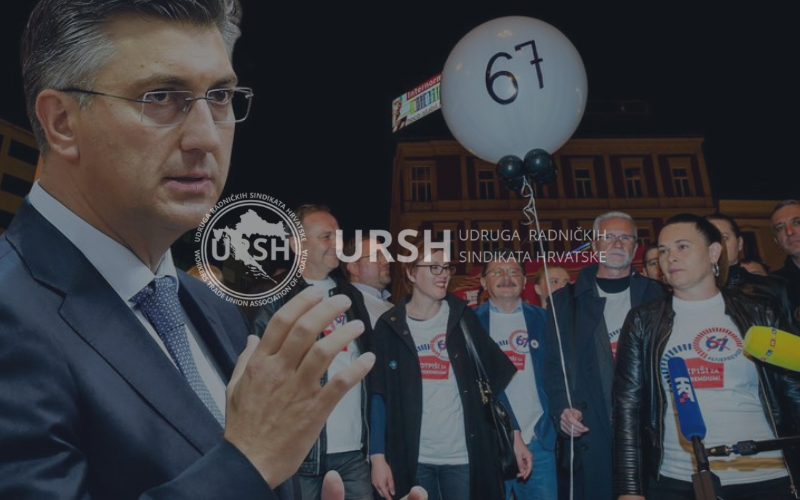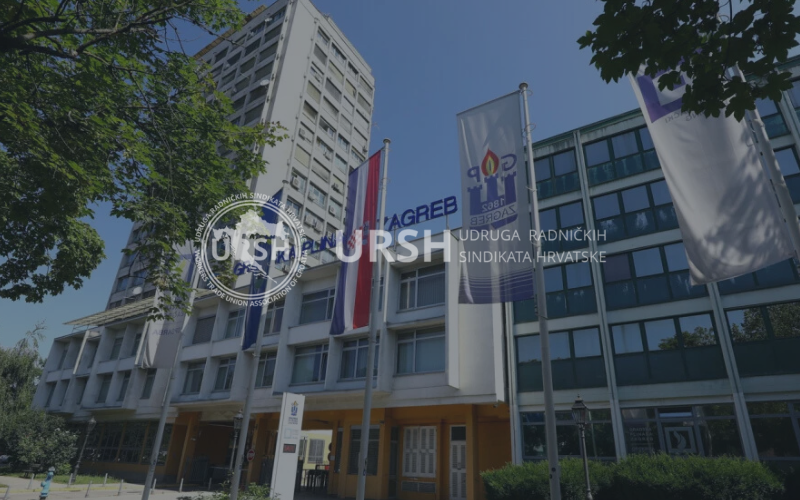Government Yields to Unions: “67 is Too much” Changes the Law
Jutarnji list reports that the Government of the Republic of Croatia has decided to fully accept the demands of the referendum initiative “67 is too much”. This means that the retirement age will be 65 years, not 67, as was planned by the pension reform.
Amendments to the Labor Law
According to the new amendments, workers with permanent contracts will not have to retire at 65 but can continue working if they wish – without a special agreement with the employer. Until now, continuing to work after 65 was only possible with an agreement with the employer.
Fiscal Projections and Favorable Effects
Minister of Labor Josip Aladrović stated that fiscal projections will be more favorable than initially communicated, as it will be possible to remain in the workforce beyond the age of 65. This, according to the minister, will continue to boost state budget revenues. Previous estimates indicated a 45 billion kuna deficit by 2040, but now the impact is expected to be significantly smaller.
Changes in Laws
The government will proceed with amendments to several laws: the Pension Insurance Act, the Labor Act, as well as laws on civil servants, local administration, health, education, and science. It is still unclear whether civil servants will be allowed to work beyond the age of 65, although there are already exceptions for certain positions.
Political Context
Prime Minister Andrej Plenković stated that the government has heard the message of the citizens. He added that some citizens wish to work even after 65, which is confirmed by the fact that 13,500 retirees have returned to the labor market. The decision to accept the union’s demands was made just before the presidential elections, and the initiative was also supported by President Kolinda Grabar-Kitarović.
What the Unions Achieved
- Retirement age: retirement at 65 years with 15 years of service (instead of 67 years).
- Women: transitional period until 2029 (instead of 2026).
- Penalization: reduction to 0.2% per month (instead of 0.3%).
- Long-term insured: possibility of retirement at 60 years with 41 years of service without penalization.
- Early retirement: 60 years of age and 35 years of service (instead of 62 years).
Responsibility and Reactions
Former Minister Marko Pavić, who claimed that the system would be in a deficit of 45 billion kuna, did not comment on the new decisions. Finance Minister Zdravko Marić stated that pensions are not at risk and that the amendments will not have a negative short-term impact.
Position of the Constitutional Court
President of the Constitutional Court Miroslav Šeparović emphasized that the Court oversees the referendum process and will not allow delays, regardless of whether the Parliament decides to call a referendum or enact legislative changes that fully meet the initiative’s demands.
Chronology of the Reform Conflict
- January 1, 2019 – start of the pension reform implementation (67-year limit).
- March 18, 2019 – announcement of signature collection.
- April 27, 2019 – start of signature collection (4,000 activists, 300 stands).
- May 11, 2019 – deadline for signature collection expired after 14 days.
- May 12, 2019 – announced that more than 600,000 signatures were collected.
- June 13, 2019 – 748,624 signatures submitted to the Parliament.
- July 12, 2019 – Government initiated signature verification.
- September 19, 2019 – Prime Minister Plenković announced that the Government accepts the initiative’s demands.
Political Reactions
Politicians from various parties reacted to the Government’s move:
- Peđa Grbin (SDP): called the move a capitulation of the Government.
- Mirando Mrsić (Democrats): demanded the resignation of Minister Pavić.
- Nikola Grmoja (Most): stated that “the Prime Minister had to sign the capitulation”.
- Goran Aleksić (SNAGA): considers the move rational as it avoids unnecessary referendum costs.
- Goran Beus Richembergh: assessed the decision as a clever maneuver before the elections.
Conclusion
By accepting the demands of the “67 is too much” initiative, the Government avoided a referendum and a conflict with more than 700,000 citizens who signed the petition. The unions achieved a significant victory, and Croatia returns to a retirement model at 65 years, with more favorable conditions for early retirement.
Latest News
PODCAST: Mobbing
NEWS PODCAST: Mobbing Kills – Urgent Legal Regulations are Necessary + why Join a Union? Mobbing Kills – Urgent Legal Regulations [...]
Kottnig: “City Gasworks Zagreb Supply on the Verge of Collapse Due to Poor Management”
In an interview with Z1 Television, the President of the Croatian Union of Gas Distribution and Gas Technology, Vlatko Kottnig, warned [...]
PODCAST: the Role of Unions and Society
The Role of Unions and Society In a special episode of the URSH podcast with Tomislav Rajković, the president of URSH, [...]
Association of Workers’ Unions of Croatia
view related content
New Collective Agreement Signed for URIHO
New Collective Agreement Signed for URIHO Zagreb, October 10, 2023. [...]
URSH President on N1 about the Strike at Varteks
Tomislav Rajković on the Varteks Strike: the First Demand is [...]
Varteks Workers’ Strike Begins
Varteks Workers' Strike Begins Due to Unpaid Wages Varaždin, May [...]









